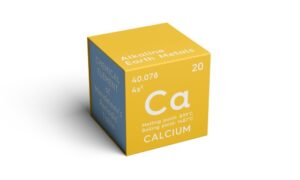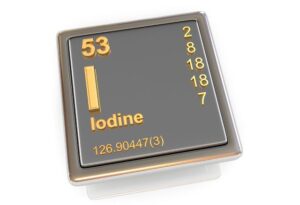The human body requires a correct chemical equilibrium, which is determined by the quantities of various minerals in the body. If one mineral level is out of equilibrium, it may affect all other mineral levels. If this sort of imbalance is not rectified, it can set off a chain reaction of imbalances that can lead to sickness or illness.
Mineral salts, which are minerals attached to a molecule such as a sulfate, carbonate, oxide, picolinate, citrate, or another negatively charged chemical group, are the source of minerals used as dietary supplements. Minerals, unlike vitamins, have a relatively stable makeup and are not destroyed by heat, cooking, or light. Minerals can thus be included in a variety of recipes to help prevent nutritional deficiencies.
Calcium

The mineral calcium is the most plentiful in the body. It accounts for 1.5-2% of our body weight, with bones accounting for over 99% of the body’s calcium content. Calcium’s primary job is to develop and maintain healthy bones and teeth.
Calcium supplements should be taken with food to achieve optimum absorption. If calcium citrate and calcium carbonate are given with meals, they are also well absorbed. Adequate vitamin D levels in the diet help in calcium absorption. Because calcium is such a vital component of our bodies, it is critical that your supplement firm chooses calcium sources that are extremely low in heavy metal impurities, such as lead.
Iron
Iron is required in the human diet for oxygen transfer in the blood and red blood cell oxygenation. Iron deficiency is predicted to affect 25% of the world’s population. Iron deficiency frequently results in anemia, tissue inflammation, and weariness.
Nonetheless, iron supplementation is not indicated until anemic. Iron from bread, milk, and cereals is poorly absorbed. If your doctor recommends iron supplements, take them with meals since iron can disturb and irritate the digestive and gastrointestinal systems.
Potassium
Potassium is a mineral that is essential for optimum health and organ function; however, most people get their potassium through their food. Supplementation not included in the diet is not advised. Potassium should only be added if your doctor has ordered it. A person’s potassium level is normally good unless they have a major health concern such as renal or cardiovascular disease.
Zinc
Zinc deficiency can result in taste and/or odor loss, delayed sexual development, and a weakened immunological response. Zinc participates in about 200 enzymatic activities that comprise our metabolic processes.
Although the 100% RDV for zinc is 15 mg, many health specialists consider it too low and prescribe at least 25-30 mg daily. Zinc may be found in a variety of foods such as egg yolks, fish, meat (including fish and poultry), shellfish, seeds, and cereals.
Selenium
Selenium is an important vitamin that aids in detoxification and has significant antioxidant activity. It acts in tandem with vitamins E and C to inhibit the creation of free radicals. Selenium may be found in meat and cereals, although its concentration varies greatly depending on the soil. Brazil nuts are one of the greatest sources of selenium, with more than 500 micrograms per ounce.
Chromium
Chromium is a vital mineral in human nutrition, although its processes remain unknown. Whole grains, cereals, mushrooms, and meat are all high in chromium. The daily value for chromium at 100% is 120 micrograms. Excess chromium should be avoided due to the risk of toxicity resulting in organ failure. Since chromium is poorly absorbed, even from chromium-rich foods, the normal American diet is insufficient in chromium.
Iodine

Iodine shortage can result in goiter, which is characterized by an enlarged thyroid gland. Most individuals get adequate iodine from their diet by consuming iodized salt. Seafood, kelp, asparagus, spinach, and mushrooms are all high in iodine concentration. The daily need for iodine is 0.15 milligrams, which is found in most multivitamin/mineral preparations.
Copper
Copper is a trace mineral that is vital in both human and animal diet. Copper helps to create many human tissues, including red blood cells. Most people get enough copper from their meals, so further supplementation isn’t essential.
Excessive copper consumption can result in copper toxicity as well as a decline in zinc and vitamin C levels. If you take a copper supplement or a multi-mineral supplement, the daily amount should not be more than 1-3 mg. The daily suggested dose is 2 mg.
Conclusion!
It’s a wrap! Minerals are essential for optimal body health. Therefore, you should make sure to eat foods rich in minerals and vitamins. Keep reading our blog for more information. Moreover, feel free to Contact Dr. Grimes to get a personalized body health and fitness consultation!
